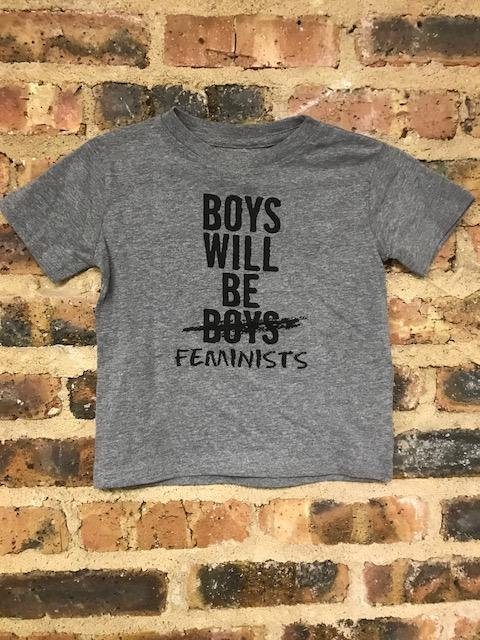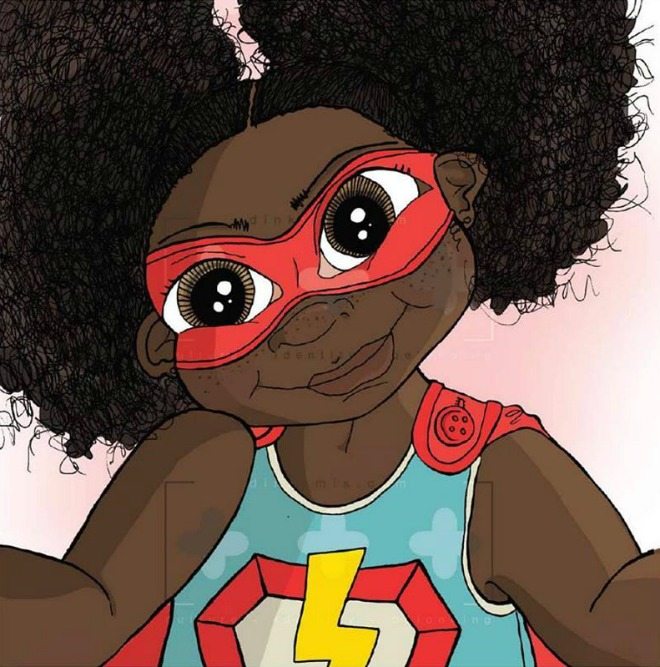Guest post by Hillary McBride, MA, RCC, PhD candidate
Through the recent increase in media attention on sexual assault, there is a sense of urgency to draw attention to the way our society and culture shape our beliefs and behaviours, and those of our children. So, how do we raise feminist children, girls who know their worth, love their bodies, and continue to push forward with strength, smarts, and passion? And, boys who respect and value men and women equally, who can be compassionate and empathetic with the struggles of others, and advocate for equality? Here are some ideas on where to start:
Five ways to raise feminist kids boys and girls
Demonstrate and talk about equality

Research in the field of developmental psychology shows that parents communicate messages in two ways, through direct communication (what you say) and modelling (what you do). For kids to really get the message loud and clear, those two need to match. Intentionally find times and ways to talk about equality and why it matters. And, make sure to point out situations of inequality (when a woman gets paid less than a man) and use them as teachable moments. But, none of that matters if there is gender inequality in the home. Make sure to take a good look at what you’re modelling in your own life.
Research in the field of developmental psychology shows that parents communicate messages in two ways, through direct communication (what you say) and modelling (what you do).
Be active in political actions (and get them involved when appropriate)
It was so incredible to be at the Women’s March in Vancouver in January of 2017 and see children holding their own handmade signs. We can’t expect kids to be involved politically when they grow up if we haven’t given them a model of what that looks like. So, talk about events that are going on locally and globally, see if there is a way to get involved, and if appropriate bring your kids. If it’s not ok to bring them, make sure to tell them what you did and why you did it.
Media literacy

Teaching your kids to be media literate starts with being media-literate yourself. If you haven’t already, look up Jean Kilbourne’s work, especially ‘Killing me softly’. Then, talk to your kid about what you’ve learned. Share how much images are altered, and how that changes the way we feel about our bodies. You can also do ‘co-viewing’ which means you consume media with your kids so you know what they’re watching. And when appropriate, ask them questions like “who’s missing on that show you’re watching” (if the show has an all-white cast) or “do people actually look like their Instagram photo” (if you see them following accounts with highly edited photos).
Watch your language
It is hard not to say the things we were told growing up, so we need to be extra careful to not make statements that reinforce rigid and harmful gender scripts. It’s not helpful to say things like “boys don’t cry” or tell the rhymes about girls being like “sugar and spice.” If you are around people who use language like that, its ok to tell them that you are trying not to say things like that around your kids. And your children are old enough, talk them through what they heard the person say, reminding them of what you believe and helping them think critically about those statements. Whenever possible, add in conversation about colonization, sexism, and racism. You can say things like “did you know that…” and “we don’t do that anymore because…”
… kids notice the little things mothers say, about themselves and others, even when the mom’s think no one is listening or watching. So make sure you speak kindly about your own body, and the bodies of others.
Talk about bodies… lovingly and with respect

In my research about how parents pass messages on to their kids about bodies, kids notice the little things mothers say, about themselves and others, even when the moms think no one is listening or watching. So make sure you speak kindly about your own body and the bodies of others. Shaming talk (at any size) is not ok. Encourage your children to take a loving ownership over their body, teaching them to say ‘no’ to any kind of unwanted touch, and dress in ways that makes them feel good from the inside out. Teach intuitive eating, and show them that bodies are precious and deserve to be cared for by ourselves and others.
This can seem like a lot, and it can also feel like there is no right time. But, real and lasting change starts with small choices and comments that happen regularly over time. So start today. You might have your partner read this post. Or, you could start by telling your children that you read an article about ‘raising feminist kids’ and why that is important for you and for them.
Hillary McBride, MA, RCC, PhD cand. is a researcher, therapist, author, and podcaster. You can read more about her work on her website www.hillarylmcbride.com, find her book on amazon or at Indigo, or hear her on the podcasts The Liturgists, or CBC’s Other People’s Problems. Follow her on Instagram at @hillaryliannamcbride or Twitter @hillarylmcbride
The post Five ways to raise feminist kids boys and girls appeared first on Toronto Mom Now.
